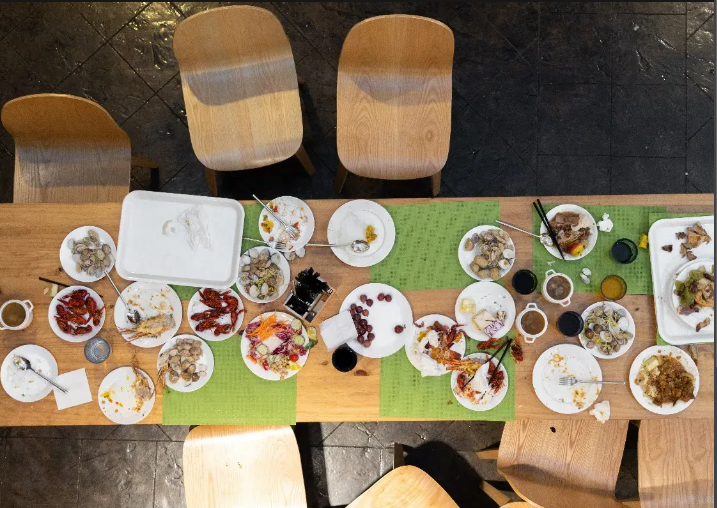|
Getting your Trinity Audio player ready...
|
Food waste is a global problem. Every year, a significant portion of the food produced ends up in landfills, creating environmental and economic concerns. However, a growing movement in restaurants is aiming to tackle this issue head-on: zero-waste dining. This blog post delves into the world of zero-waste restaurants, exploring their practices, the benefits they offer, and the future of this sustainable approach.

The Mounting Problem of Food Waste
Food waste is a complex issue with far-reaching consequences. It depletes resources used in food production, like water and land, while generating methane gas in landfills. This gas contributes to climate change. Additionally, wasted food represents lost revenue for restaurants and a missed opportunity to nourish our communities.
The Rise of Zero-Waste Restaurants
In response to these concerns, a new wave of restaurants is embracing zero-waste practices. These restaurants prioritize minimizing food waste throughout their operations, from procurement to disposal. Their innovative approaches are not only environmentally friendly but also contribute to a more sustainable and responsible food system.
Strategies for Zero-Waste Dining
Here are some key strategies employed by zero-waste restaurants
Mindful Sourcing
Partnering with local farmers and producers allows restaurants to buy seasonal ingredients, reducing spoilage and transportation emissions.
Creative Menu Planning
Utilizing whole ingredients and implementing creative ways to use scraps minimizes waste. Dishes might feature vegetable stems, fruit peels, or “ugly” produce that would otherwise be discarded.
Composting Programs
Food scraps that cannot be repurposed are composted, creating nutrient-rich soil for gardens or local farms, closing the loop in the food cycle.
Rethinking Packaging
Zero-waste restaurants often use biodegradable or reusable packaging for takeout orders, minimizing reliance on single-use plastics.
Customer Education
Creating awareness about food waste and encouraging responsible consumption practices among patrons is crucial.
Benefits of Zero-Waste Dining
The benefits of zero-waste dining extend beyond environmental advantages. Here’s what this approach offers:
Cost Savings
Minimizing waste reduces food costs for restaurants, allowing them to invest in higher-quality ingredients or lower menu prices.
Enhanced Creativity
Zero-waste practices encourage chefs to get creative, leading to innovative and unique dishes that utilize all parts of an ingredient.
Community Building
Partnering with local farms and adopting sustainable practices can strengthen a restaurant’s connection to its community.
Challenges and Opportunities
While zero-waste dining offers significant benefits, there are challenges to consider:
Initial Investment
Implementing zero-waste practices might require initial investments in equipment or training for staff.
Shifting Consumer Mindsets
Educating customers about the importance of responsible consumption and reducing food waste on their plates is crucial.
The Future of Zero-Waste Dining:
Despite the challenges, the future of zero-waste dining appears bright. As consumers become more environmentally conscious, the demand for sustainable practices will continue to grow. Additionally, technological advancements in food preservation and resource management can further support this movement.
Technological Advancements
Technologies like smart inventory management systems and food waste reduction apps can streamline operations and minimize waste.
Collaboration and Advocacy
Collaboration between restaurants, policymakers, and food producers can create a more supportive environment for zero-waste practices to flourish.
Conclusion
Zero-waste dining is not just a trend; it’s a necessary step towards building a more sustainable and responsible food system. By embracing creativity, collaboration, and education, restaurants can play a leading role in reducing food waste and shaping a brighter future for our planet. Let’s support these restaurants and join the movement towards a future where “from waste to table” becomes a reality.
you can find moe here:
Exploring the Delicious World of Food Network Recipes








